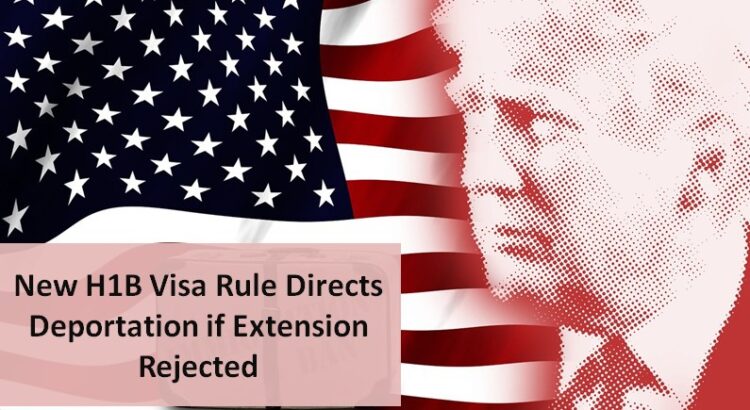The complications of non-residents in the US are likely to rise up. The USCIS has formulated more stringent H1B visa rules. That’s why India diaspora should be ready to undergo severity in America.
As of May 31 this year, the backlog of visa applications exceeds seven lakh cases. It includes petitions for seeking initial visa and its extension. The count of processed applications reached 3.65 lakh till 30 September, 2017.
Let’s have a look over why complexities are going to take a toll. Go through the contradictory scenarios of erstwhile and current happening:
What used to be the USCIS processing time and schedule for H1B visa?
Before introducing new H1B visa rules, you used to have 240-day work authorization. As your tenure expired, your employer could apply for a fresh H1B visa in the next application season. Meanwhile, you could catch a flight for an immediate return to India.
What is now happening?
- If your application for visa extension is rejected, you can’t come immediately as you might do erstwhile.
- The USCIS authority will issue a Notice-to-Appear (NTA). It notifies that you’ll have to appear for hearing before the special immigration judge, there. However, the procedure of deportation will be initiated since then.
- The real trauma will begin when you can’t go to your home country, even if your work-visa is expired. You will have to stay there for trials.
- Your presence in the USA post visa-expiry will be marked as unlawful. Therefore, you’ll have to face off harsh consequences. You would have to stay for months in the US even if he no longer holds the job.
The NTA can be issued, but not limited, to those who are caught up in the cases, like fraud, criminal charges or denial asylum or refugee status.
What are the consequences of the new H1B visa rule?
There are two severe consequences that you could face due to visa-extension rejection.
- First, you can’t leave the country even though your legal tenure to work there is expired. If you leave, you’ll be barred from re-entry to the US.
- Second, if your stay will exceed a year, you could be penalized with a 10-year bar on the re-entry to the American nation.
However, the severity of this USCIS processing time can be challenged in the court. You can appeal for a voluntary departure there.
But, the matter of concern is the trial. You have to be present in the first hearing. The worst thing is that you have to wait for months for letting it happen. Thereupon, you can seek the voluntary departure.
Consider another scenario. If your extension of the visa plea is denied, you can appear against it. The litigation will occur. Although these trials may consume a lot of precious time, yet you may win. If the judge will reverse the rejection, your processing of deportation could also be challenged in the court.
What should be done to avoid such visa penalty and consequences?
You must take into account the expiry date of your visa. Notify that your petition for the extension of visa should be filed before six months at least before the existing visa tenure. Otherwise, you can opt for the premium processing. It definitely would require you to have a deep pocket to bear its cost. But, you can heave a sigh of relief as it triggers a shorter processing time.
In the nutshell, you can premeditate what would be the best time to apply for the adjustment of status. Keep into account that the date should be six months prior to the current visa tenure.











